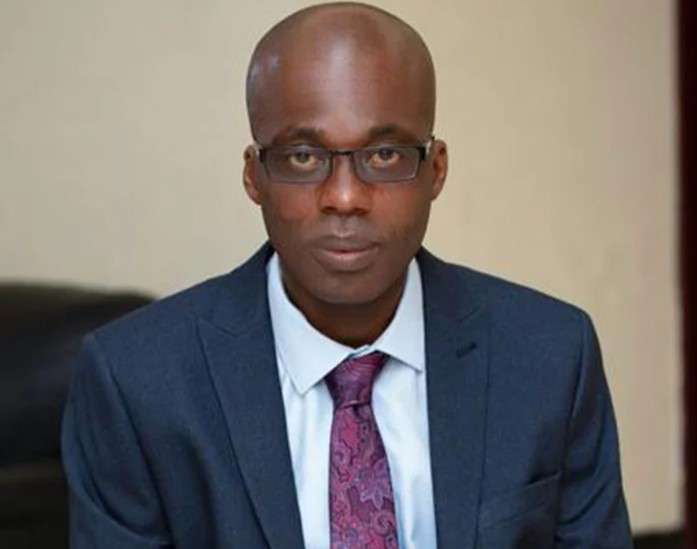The devastating fire that engulfed a section of the Kumasi market has once again highlighted serious concerns about fire safety, emergency preparedness, and crisis management in Ghana.
The inferno, which left many businesses in ruins, has reignited conversations about the structural deficiencies and inefficiencies that continue to plague the country’s fire response system.
Dr. Kwame Asiedu Sarpong, a Public Health, and Democracy and Development Fellow at the Ghana Centre for Democratic Development (CDD-Ghana) has weighed in on the situation, pointing out the deeper systemic failures exposed by the incident.
According to him, the chaotic response to the fire is symptomatic of broader issues within the Ghana National Fire Service (GNFS) and the general crisis management framework in the country.
In the immediate aftermath of the fire, the Ashanti Regional Minister publicly confronted fire officers, accusing them of responding inadequately due to a lack of water in their fire tenders.
However, new reports suggest that the minister may have been misinformed by the very officers he sought accountability from.
“This raises a critical question: Why would fire officers misinform a government official in the middle of an emergency? Was it a defensive reaction to avoid blame? Or does it reflect a deeper issue of under-resourcing that makes honesty inconvenient?”
Dr. Kwame Asiedu Sarpong
He further observed that in a society where subordinates often fear authority figures, it is not uncommon for officials to tell leaders what they want to hear rather than the uncomfortable truth.
He noted that, however, in firefighting, misinformation can have deadly consequences.
If the GNFS is underfunded and poorly equipped, he argued, then there should be an open and honest conversation about these deficiencies instead of discovering them only in the midst of disasters.

Beyond the challenges facing the fire service, Dr. Sarpong also raised concerns about the overall design and accessibility of market spaces in Ghana.
Many market areas, he observed, are virtual death traps—congested, poorly planned, and lacking the necessary infrastructure to facilitate emergency responses.
He stressed that fire hydrants, which should serve as crucial firefighting resources, are often inaccessible or non-functional, sometimes blocked by illegal structures. “How did we get here, and why has no serious action been taken?”
Leadership and Crisis Management in Question
Another controversial aspect of the Kumasi market fire incident was the public outburst of the Ashanti Regional Minister, which has been met with criticism.
The Public Relations Officer (PRO) of the GNFS later described the Minister’s reaction as “uncalled for.”
While acknowledging the frustration that arises during such crises, Dr. Sarpong pointed out that good crisis management requires calmness and a well-coordinated response.

He criticized the PRO’s decision to publicly challenge the Minister’s outburst, describing it as an example of poor emotional intelligence.
“He should have realized that good public relations requires calmly assessing the situation, asking the right questions, and ensuring accountability in a structured manner.
“If he had done that and been clothed with the full facts, he would not have been at the mercy of NDC bloodhounds on social media.”
Dr. Kwame Asiedu Sarpong
Dr. Sarpong further argued that instead of engaging in political blame games, stakeholders should be focused on conducting an independent investigation into the fire.
He believes such an inquiry should cover not just the market’s layout but also the structural integrity of markets across the country and the readiness of fire response teams.
Urgent Questions That Need Answers
Furthermore, Dr. Kwame Sarpong raised several pressing questions that need to be addressed to prevent similar tragedies in the future.
He questioned the preparedness of the Ghana National Fire Service and whether it has the necessary resources to effectively respond to emergencies.
He also criticized the tendency of some officers to provide misleading information rather than presenting the facts.

Additionally, he highlighted the persistent fire risks in Ghana’s markets despite past incidents, asking why these hazards remain unaddressed.
Finally, he called for concrete and actionable measures to prevent such disasters from recurring.
According to him, until these hard questions are answered with honesty and practical solutions implemented, Ghana will continue to witness businesses and livelihoods being destroyed by preventable fires while leaders scramble to assign blame.
“If we continue handling emergencies the way we always have, reacting with outrage but failing to implement real reforms, how many more markets, businesses, and lives will be lost before we wake up?”
Dr. Kwame Asiedu Sarpong
The Kumasi market fire is a wake-up call for all stakeholders, from policymakers to emergency service providers.
The time for empty rhetoric is over—real action is needed to ensure fire safety measures are effectively enforced to prevent future tragedies.
READ ALSO: Mariah Carey Wins Copyright Case Over Christmas Hit
Tags: Fire Safety, Emergency Response, Kumasi Market Fire, Crisis Management, Ghana National Fire Service,
Keyword: Fire Safety




















